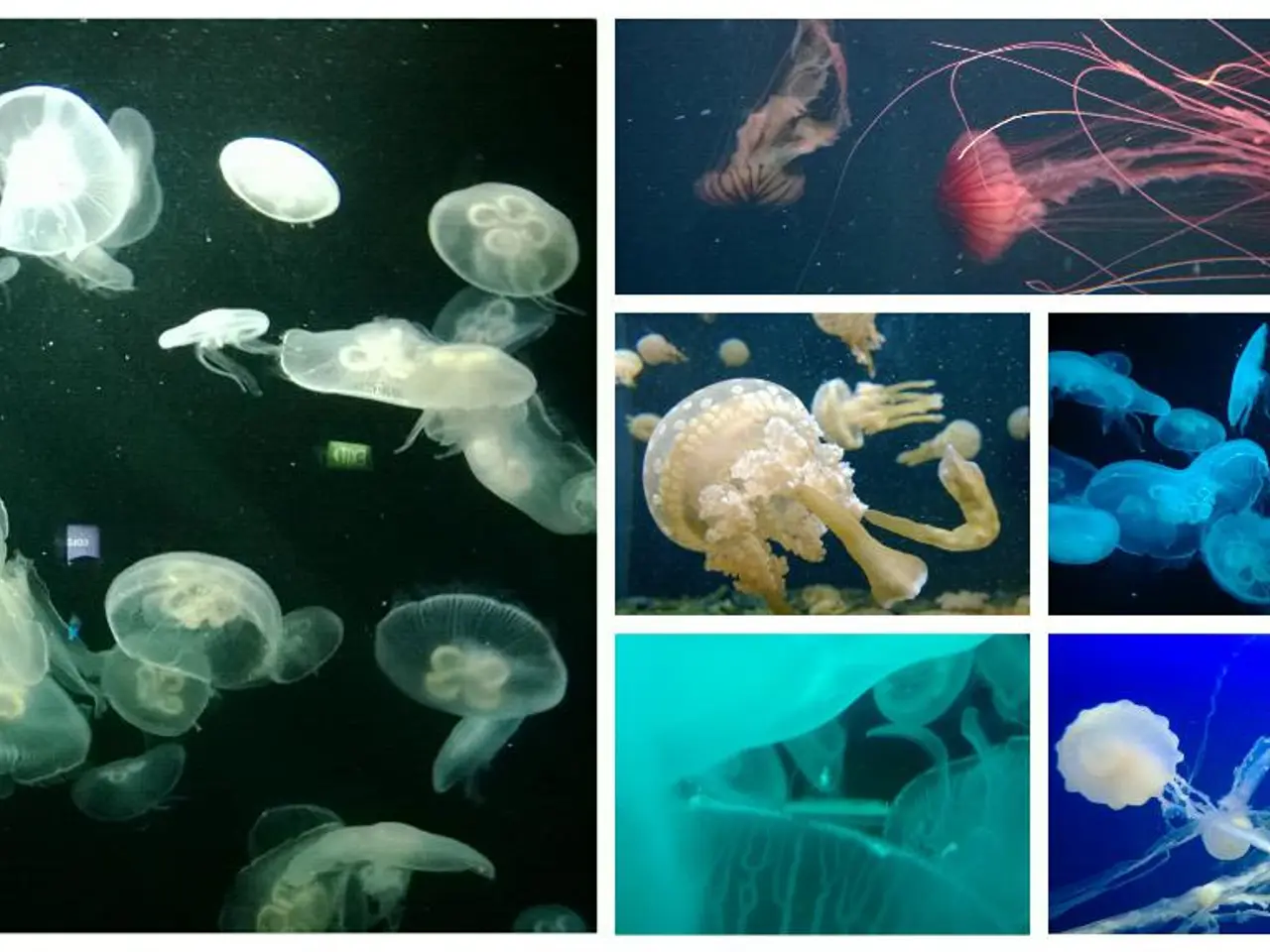Scientists Unveil Innovative freezed our beloved ice: Now Cold and Solid, Yet Never Spills!
Introducing Jelly Ice: A Compostable, Eco-Friendly Cooling Solution
In a groundbreaking development, researchers at the University of California, Davis have created an innovative cooling material called Jelly Ice. This eco-friendly alternative to traditional cooling packs is set to revolutionise various industries, from food preservation to medication transport.
Led by Gang Sun and Jiahan Zou, the team behind Jelly Ice was inspired by the observations of food scientist Luxin Wang. Unlike conventional cooling packs, Jelly Ice is not encased in a plastic shell, making it fully compostable.
Jelly Ice can be moulded into plates of approximately 0.45 kg, similar to commercial cooling packs. One of its key advantages is its ability to store more energy during the melting process without releasing water. This unique property contributes to its longevity and effectiveness, as the cooling effect persists even after multiple freeze-thaw cycles.
While the technology for Jelly Ice is already licensed, further steps such as market analyses, product development, and large-scale tests are necessary before it can be marketed widely. Researcher Jiahan Zou is optimistic about the future, expressing his belief in the immense possibilities offered by natural biopolymers. He is convinced that there will be amazing biopolymer products in the pipeline.
Jelly Ice has potential applications beyond keeping fish, meat, or vegetables fresh. It could be used in medication transport, biotechnology, and regions with scarce water for ice production. In addition, Jelly Ice has shown promising results in improving the growth of tomato plants when worked into the soil.
In an effort to expand the applications of Jelly Ice, Zou is currently investigating other natural biopolymers, such as plant proteins like soy. These could be used in removable coatings or as cell scaffolds in cultivated meat. By avoiding synthetic polymers, Jelly Ice also prevents the production of microplastics, making it a more sustainable choice.
In conclusion, Jelly Ice represents a significant step towards more eco-friendly cooling solutions. Its compostable nature, energy storage capabilities, and multiple potential applications make it a promising contender in the fight against plastic waste and climate change. As research continues, we can look forward to seeing Jelly Ice make a tangible impact in various industries.
Read also:
- Peptide YY (PYY): Exploring its Role in Appetite Suppression, Intestinal Health, and Cognitive Links
- Toddler Health: Rotavirus Signs, Origins, and Potential Complications
- Digestive issues and heart discomfort: Root causes and associated health conditions
- House Infernos: Deadly Hazards Surpassing the Flames








